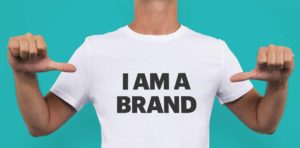Very often, we come across the term, “Personal Brand” discussed both online and offline. If you have dismissed it as nothing but marketing lingo, up till now, then you’re wrong. Your personal brand is your biggest asset.
It’s all about you. It encapsulates your journey as a professional or an entrepreneur. It’s your very essence and aura, which draws in your target audience to you. Your personal brand is a powerful tool to create and build your credibility and visibility in your field.
What constitutes your Personal Brand?

No steadfast rule states what defines clearly what makes up your brand and what isn’t part of it. It can be anything from your resume, blog, social media pages, website, and even the way you walk and carry yourselves. Whatever be the channel you use, the message must be direct, clear and relevant to ensure that you attract and pull in your audience.
Today’s article is not about how to hone your personal brand. Instead, it’s about how to ensure that it stays strong even during changes or transformations in your career.
Why are Career Changes Unavoidable?

In today’s digital and hyper-connected world, things don’t always happen according to plan – you may move to a new city or even another country; or you may feel like that you’re not headed in the right direction or want to work on something else that attracts your passion; or you may feel like that you have to change your career to spend more time with your family, or the dreaded lay-off might have happened to you.
As you can see, there are plenty of reasons where a career change may be unavoidable. What matters here is that – you shouldn’t let any temporary setbacks or changes in your career to impact your personal brand.
When handled in the right way, nonlinear career paths help you in the long run. Here, in today’s post, we give you tips and tricks to protect your personal brand during a shift in your professional path.
1. Keep on Learning
The thing about life is that it throws surprises your way when you’re least expecting it. You may feel like that you have your next five decades planned and charted. But, then life throws you a googly, derailing all your plans.
The smart way is to be prepared for the worst. Depending on the economy and your industry, you may have to face layoffs sometime in your career. The best way to handle this is by moving forward.
Whether you sign up for a professional class, volunteer or acquire new skills – your future employer will be impressed on seeing that you have utilized even your downtimes to your benefit.
“Continuous Learning and Skill Upgradation is one of the sure-fire ways to demonstrate your personal brand in the best light.”
2. Be Aware of Your Value
During a career change, future employers or prospective investors don’t want to trust a person who doesn’t believe himself/herself. Make sure that you know your worth, be explicit about your brand and present it in the best light.
3. Actions speak louder than Words
Whatever happens, ensure that you’re always active and engaged. Focus on a side business, a hobby, supporting a cause or volunteering. This shows that you as a person are self-motivated and believe in your values and purposes.
Remember that your professional job is just a chapter of your rich life. People who keep themselves engaged and active, even during a layoff or a problematic phase in their career are some of the most positive and inspiring individuals out there.
4. Learn how to Communicate your Personal Brand
It’s essential that you know how to communicate your personal brand at all times, and especially during career transformations. Communicating your brand is a two-part process. First, you have to draft your personal brand message that highlights your strengths. Second, you must know how to clearly and concisely deliver the message to those who matter.
Here, we give you guidelines on communicating your personal brand.
5. Who are the people, you want to listen to you?
This is the starting point. First, identify your target audience. Do you want to impress prospective employees? Or do you want to attract investors who will invest in your idea?
Once you have a clear idea of who you’re targeting, the next step is to work out ways to attract them. Start by identifying the common interests and passions of your potential audience. Then, create values and messages that will appeal to them.
6. How to Perfect the Core Message of your Personal Brand?
While it’s ok to get an idea of what your target audiences like, you shouldn’t position yourself as a carbon-copy of others in the same industry. You have to work on identifying your individual skills and expertise that makes you stand out.
For instance, you may assume that by stating that you’re a hard worker is bound to impress potential employers. The reality is that nearly 99% of all job candidates mention that they are hard workers in their resume. By stating the same, you’re getting lost in a sea of similar voices.
The idea here is that you have to find the qualities and traits that separate from the others in your industry. Once, you have the clear picture of what makes you unique; your brand identity begins to form.
Remember that you must be the first person who is sold on your brand value before you can push it onto others.
7. The best Platforms to Build your Brand
Online forums, social media networks, resumes are all places to build and develop your personal brand. Apart from these, blogging is another popular way to promote your brand. Thought leadership is an emerging term that is gaining popularity these days.
It is a subset of blogging. In this, you create and share relevant content on a particular topic among members of your target audience. This way you slowly establish yourself as a person of authority on the subject, by providing value to your audience. This helps in building the credibility of your personal brand. Some of the popular content sharing sites include LinkedIn discussion groups, Reddit, Pinterest, Quora, industry news feed, and even popular social networks like Facebook.
8. Internalize your Brand to Communicate it Well
One of the biggest mistakes made by individuals during a career change is that they shy away from speaking about their personal achievements and accomplishments, due to the fear of sounding like that they are bragging. The interview is not the place to be modest. You can still come across as a professional while highlighting your personal achievements.
During a career change, ensure that you’re 100% confident of the message you’re communicating. You may be a top web-designer, but will you be able to state that fact to strangers you come across? Remember that,
For your personal brand to succeed, you must be comfortable advertising yourself.
This may feel a bit awkward the first couple of times. So, it pays to practice what you’re looking to communicate, with your target audience. Imagine the conversation and try it out on your friends and family.
9. The Last Word
Remember that all information you post on the digital world is all part of your personal brand. And, it pays to keep it professional. Before you post a Facebook post or tweet a Twitter message, saying that your previous job sucks or bad-mouthing former colleagues take a minute to pause and remind yourself that all these information will determine your personal brand.
And, a well-crafted and strategic personal brand is an effective arsenal that keeps you going during a career change.
If you need help crafting and promoting your personal brand, get in touch with your brand strategic experts here at WebSenor Infotech. Our expert team will help you fuel your career growth by positioning yourself in the best light possible.
 No steadfast rule states what defines clearly what makes up your brand and what isn’t part of it. It can be anything from your resume, blog, social media pages, website, and even the way you walk and carry yourselves. Whatever be the channel you use, the message must be direct, clear and relevant to ensure that you attract and pull in your audience.
Today’s article is not about how to hone your personal brand. Instead, it’s about how to ensure that it stays strong even during changes or transformations in your career.
No steadfast rule states what defines clearly what makes up your brand and what isn’t part of it. It can be anything from your resume, blog, social media pages, website, and even the way you walk and carry yourselves. Whatever be the channel you use, the message must be direct, clear and relevant to ensure that you attract and pull in your audience.
Today’s article is not about how to hone your personal brand. Instead, it’s about how to ensure that it stays strong even during changes or transformations in your career.
 In today’s digital and hyper-connected world, things don’t always happen according to plan – you may move to a new city or even another country; or you may feel like that you’re not headed in the right direction or want to work on something else that attracts your passion; or you may feel like that you have to change your career to spend more time with your family, or the dreaded lay-off might have happened to you.
As you can see, there are plenty of reasons where a career change may be unavoidable. What matters here is that – you shouldn’t let any temporary setbacks or changes in your career to impact your personal brand.
When handled in the right way, nonlinear career paths help you in the long run. Here, in today’s post, we give you tips and tricks to protect your personal brand during a shift in your professional path.
In today’s digital and hyper-connected world, things don’t always happen according to plan – you may move to a new city or even another country; or you may feel like that you’re not headed in the right direction or want to work on something else that attracts your passion; or you may feel like that you have to change your career to spend more time with your family, or the dreaded lay-off might have happened to you.
As you can see, there are plenty of reasons where a career change may be unavoidable. What matters here is that – you shouldn’t let any temporary setbacks or changes in your career to impact your personal brand.
When handled in the right way, nonlinear career paths help you in the long run. Here, in today’s post, we give you tips and tricks to protect your personal brand during a shift in your professional path.
 No steadfast rule states what defines clearly what makes up your brand and what isn’t part of it. It can be anything from your resume, blog, social media pages, website, and even the way you walk and carry yourselves. Whatever be the channel you use, the message must be direct, clear and relevant to ensure that you attract and pull in your audience.
Today’s article is not about how to hone your personal brand. Instead, it’s about how to ensure that it stays strong even during changes or transformations in your career.
No steadfast rule states what defines clearly what makes up your brand and what isn’t part of it. It can be anything from your resume, blog, social media pages, website, and even the way you walk and carry yourselves. Whatever be the channel you use, the message must be direct, clear and relevant to ensure that you attract and pull in your audience.
Today’s article is not about how to hone your personal brand. Instead, it’s about how to ensure that it stays strong even during changes or transformations in your career.
 In today’s digital and hyper-connected world, things don’t always happen according to plan – you may move to a new city or even another country; or you may feel like that you’re not headed in the right direction or want to work on something else that attracts your passion; or you may feel like that you have to change your career to spend more time with your family, or the dreaded lay-off might have happened to you.
As you can see, there are plenty of reasons where a career change may be unavoidable. What matters here is that – you shouldn’t let any temporary setbacks or changes in your career to impact your personal brand.
When handled in the right way, nonlinear career paths help you in the long run. Here, in today’s post, we give you tips and tricks to protect your personal brand during a shift in your professional path.
In today’s digital and hyper-connected world, things don’t always happen according to plan – you may move to a new city or even another country; or you may feel like that you’re not headed in the right direction or want to work on something else that attracts your passion; or you may feel like that you have to change your career to spend more time with your family, or the dreaded lay-off might have happened to you.
As you can see, there are plenty of reasons where a career change may be unavoidable. What matters here is that – you shouldn’t let any temporary setbacks or changes in your career to impact your personal brand.
When handled in the right way, nonlinear career paths help you in the long run. Here, in today’s post, we give you tips and tricks to protect your personal brand during a shift in your professional path.












